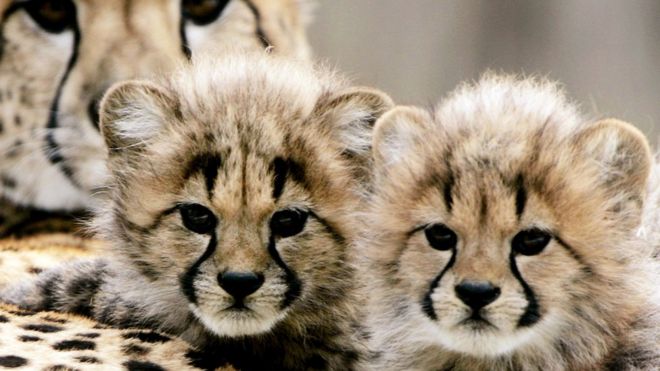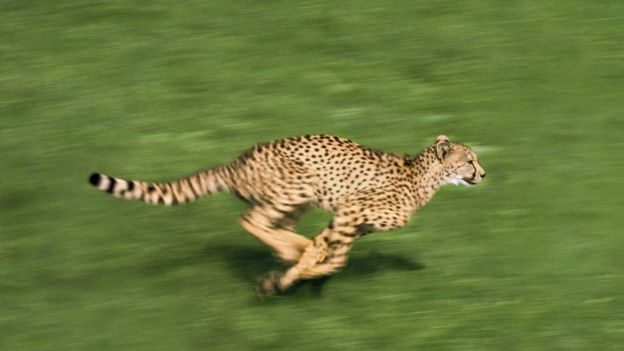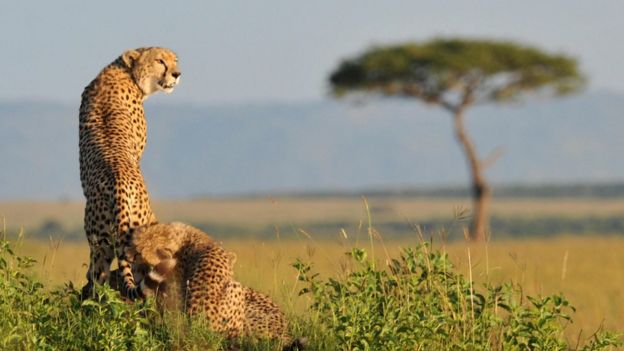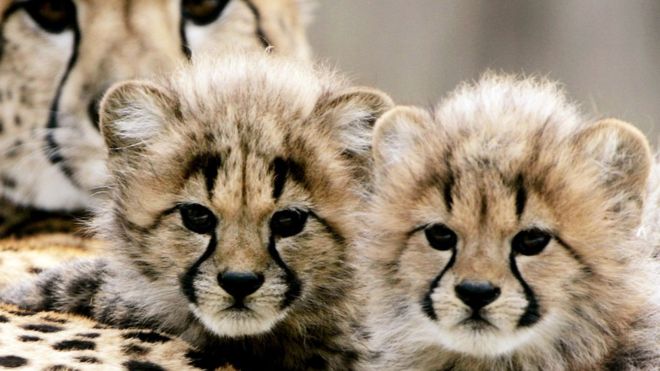
Arab nations have joined forces with the African countries to suppress the illegal live trade in cheetahs.
A recent BBC report highlighted the desperate plight of young cheetahstrafficked from Africa to the Middle East.
One key element of the new plan is to tackle the use of social media to flaunt, pose or advertise these endangered big cats.
Experts welcomed the new approach as a big step for a diminishing species.
Fashion victim
The world’s fastest land mammal has had a difficult time in recent years.
As well as the fragmentation of habitats in many of its natural ranges in Africa, it has also become a fashion accessory, especially in the Middle East.
Social media has become an important aspect of the cheetah trade, allowing new owners to show off expensive purchases, as well as connecting buyers and sellers.
With less than 7,000 animals remaining, spread across 29 different countries, cheetahs are described as vulnerable in the IUCN Red List. They have suffered over 90% population loss since 1900.
Cheetahs are on Appendix I of Cites, meaning that all trade is banned.
However the combination of fashion, technology and greed have contributed to a rise in the trade of cheetah cubs.
Dozens are seized in the wild, packed into crates and shipped off to Middle Eastern destinations.
“It can be young men buying them as a status symbol or the machismo of having a big cat as a pet,” said Sarah Durant from the Zoological Society of London.
“There are also young women buying a cub thinking they can rescue it, but even that is adding fire to the trade, they are creating demand inadvertently.
“Cheetahs are wild animals which don’t do well in captive situations, most of them will die young.”
Over the past decade, according to the Cheetah Conservation Fund, some 1,200 cubs are known to have been trafficked out of Africa, with some 85% of them dying during the journey.
 Image copyrightSPL
Image copyrightSPLNations meeting here at the Cites conference that regulates international trade in endangered plants and animals, have agreed new measures to limit the cheetah market
- greater co-operation between states with cheetahs in the wild and consumer states
- raising awareness
- crucially, a unified approach to tackling social media.
“Social media platforms perpetuate and exaggerate the trade in many ways,” said Nick Mitchell from the Wildlife Conservation Society.
“It has been brought up before and they may not have reacted the way we would have wished them to.”
“What’s different now is that we have the secretariat of Cites examining this, and it has the approval of 180 countries – this is all parties and it carries a lot of weight.”
What’s also different about the approach agreed here in South Africa is the support from Arab states, which are recognising the problem and attempting to deal with it.
 Image copyrightGETTY IMAGES
Image copyrightGETTY IMAGESThe United Arab Emirates, for one, is about to enact new legislation that it is hoped will have a significant impact on demand.
“We have noticed that there are a few interests from people to own some animals that are exotic or endangered, we think we need to regulate all of those activities and reduce the demand,” said Ahmed al-Hashmi, director of biodiversity at the UAE’s Ministry of Climate Change and Environment.
“This new legislation will regulate the owning of endangered animals, so it says who is able to own them, like zoos or breeding centres, but also regulates the registering of them by individuals. It will reduce demand.”
The UAE is also backing efforts to crack down on social media platforms, saying they had already targeted some of the biggest websites and had removed many advertisements.
But they also believe that individuals need to take responsibility for their action on the Internet.
“We are sending a message to the individuals: You have a role, you should be aware of the legislation, you should be aware of those animals, that they have rights also.”
[Source:-BBC]







